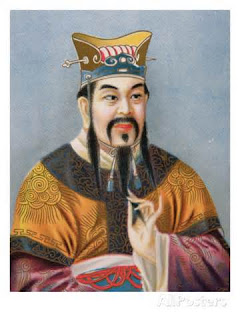1. Prophet of Islam, Muhammad S.A.W
Muhammad SAW is the Messeger of Allah and considered by Muslims as the last Prophet sent by God to mankind. While non-Muslims generally regard Muhammad as the founder of Islam. He revealed the words of the Quran, Islam's holy book, and lived Islam as an example for Muslims to follow.
2. Isaac Newton
Isaac Newton was the greatest English mathematician of his generation. He laid the foundation for differential and integral calculus. His work on optics and gravitation make him one of the greatest scientists the world has known.
3. Isa A.S or Jesus
Isa AS is one from the Muslim's series of prophets and known as Jesus for Christians and believed to be the founder of Christian religion. His teachings and life are recorded in the Bible’s New Testament and emulated by Christians all over the world.
4. Gautama Buddha
Gautama Buddha, also known as Siddhārtha Gautama, Shakyamuni, or simply the Buddha, was a sage on whose teachings Buddhism was founded. He is believed to have lived and taught mostly in eastern India sometime between the sixth and fourth centuries BCE.
5. Confucius
Confucius was a Chinese teacher, editor, politician, and philosopher of the Spring and Autumn period of Chinese history. The philosophy of Confucius emphasized personal and governmental morality, correctness of social relationships, justice and sincerity.
6. St. Paul
St Paul originally known as Saul of Tarsus was an apostle who taught the gospel of Christ to the first-century world. According to writings in the New Testament Paul, who was known as Saul early on, was dedicated to the persecution of the early disciples of Jesus in the area of Jerusalem.
7. Ts'ai Lun
8. Johann Gutenberg
Johannes Gutenberg was a German blacksmith, goldsmith, printer, and publisher who introduced printing to Europe. His invention of mechanical movable type printing started the Printing Revolution and is widely regarded as the most important event of the modern period.
9. Christoper Columbus
Christopher Columbus was an Italian explorer, navigator, colonizer and citizen of the Republic of Genoa. He completed four voyages across the Atlantic Ocean. Those voyages, and his efforts to establish permanent settlements on the island of Hispaniola, initiated the Spanish colonization of the New World.
10. Albert Einstein
Albert Einstein was a German-born theoretical physicist. He developed the general theory of relativity, one of the two pillars of modern physics (alongside quantum mechanics). Einstein's work is also known for its influence on the philosophy of science.









